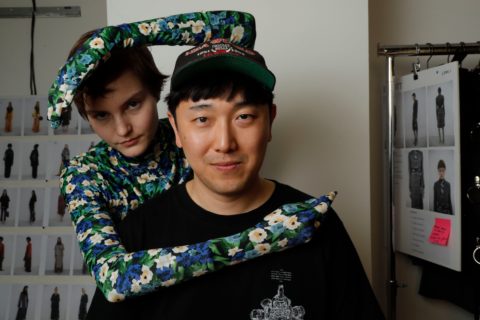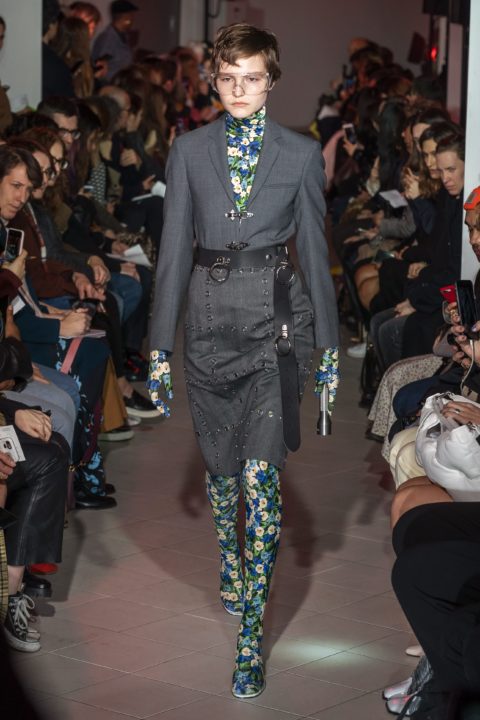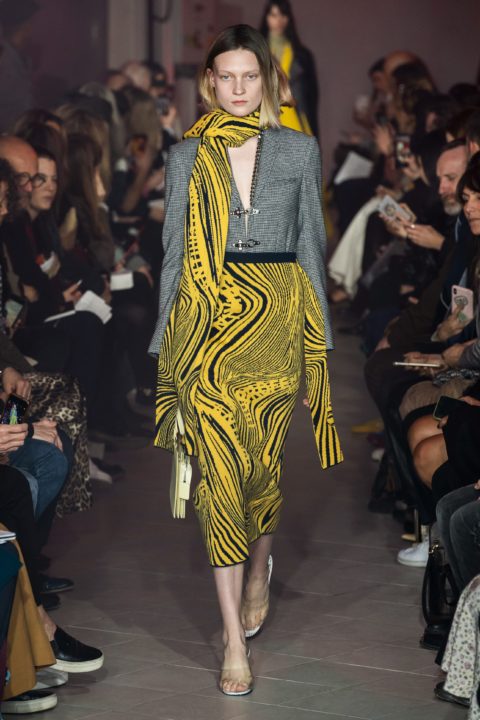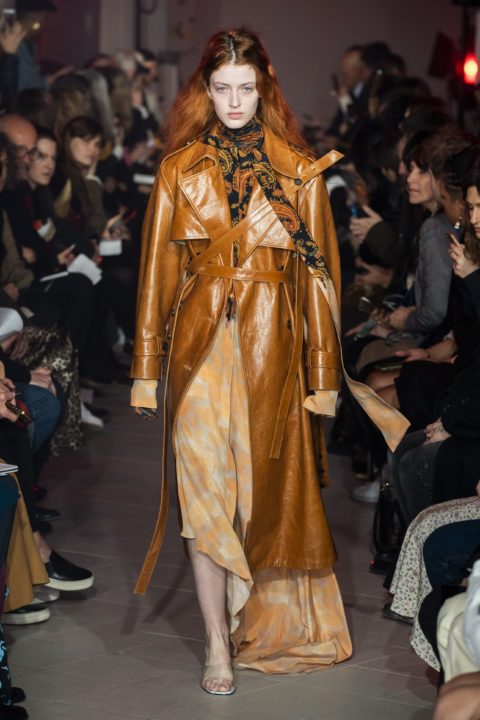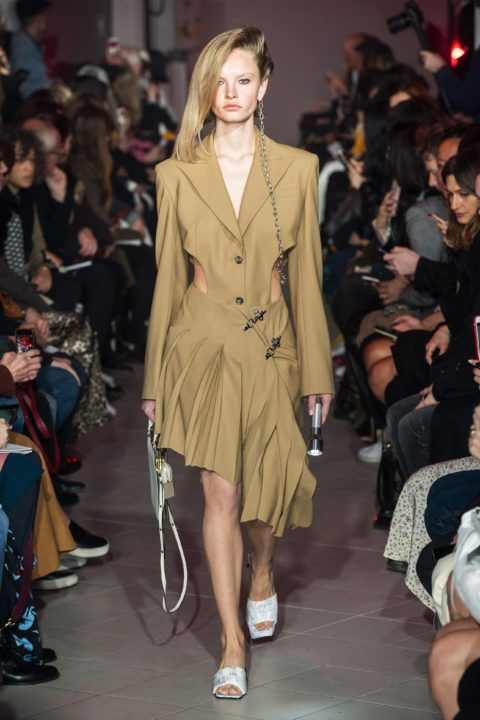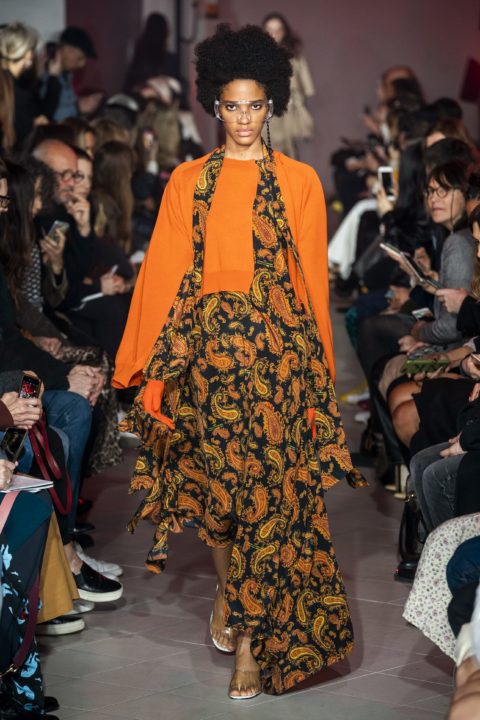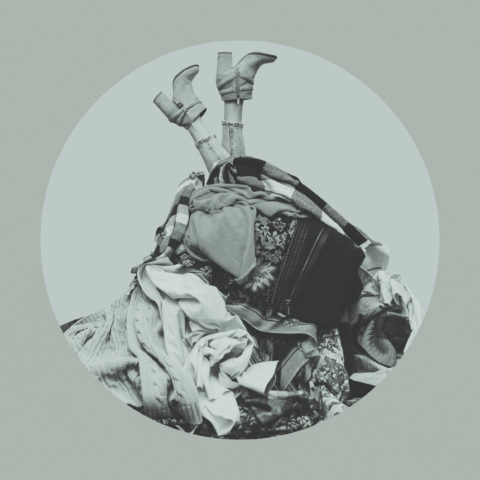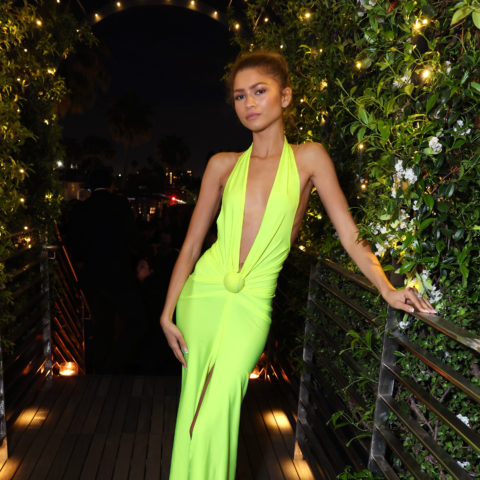Rokh is the Brand that Will Finally Replace Phoebe Philo’s Céline
Rok Hwang has already won the 2018 LVMH Special Prize. With the debut of his collection at Paris Fashion Week, he's primed for takeoff.
I have a confession to make that feels somewhat sacrilegious: I was never that into Phoebe Philo’s Céline. “Muted,” “understated,” and “quiet” are traits I find useful in an apartment building but not necessarily my wardrobe, where I prefer to dabble in such timeless trends as ‘mall goth’ and ‘prairie dresses.’ I just don’t find minimalism visually stimulating and will forever remember the time period between 2012-2016 as a fashion void where everyone was trying to channel either sexy Steve Jobs or a cult leader.
That said, it was still disheartening to watch as the cohesive brand identity Philo had singlehandedly created for Céline was razed to the ground by her successor in favour of ahistorical, overpriced clubwear. No one in the industry could fathom which brand would pick up where Philo left off. Would it be The Row, who charges upwards of $1000 for a modest-looking cashmere sweater? Even Gabrielle Boucinha, the mastermind behind @oldceline, wasn’t quite sure.
Enter Rokh, an upstart label founded by Rok Hwang, a Korean-American who grew up in Austin, Texas but is now based in London. Founded in 2016, Rokh made its Paris Fashion Week debut earlier this week with a complicated collection that made unpredictability its hallmark: business lady blazers were outfitted with bondage clasps, sensible pencil skirts were layered atop kinky Perspex, and paisley dresses shared equal airtime with neon turtlenecks.
Hwang trained under Louise Wilson, the fashion design professor who launched Alexander McQueen’s career after admitting him into Central Saint Martins’ Masters program without the requisite degree, and yes, Phoebe Philo. “Phoebe really helped me to define how to cut or fit a garment and taught me to perfect everything I make. That has been a real, life-changing experience for me,” Hwang told WWD. Though Philo’s influence on his work is palpable, it is hardly the defining characteristic. Hwang twists Philo’s quiet sensibility into something almost unrecognizable, where practicality mingles with perversity.
On first glance, Rokh’s designs are wild and freewheeling, yet on second glance, a restraint emerges. Hwang whips up stodgy fabrics like tweed and grey suiting into unexpected shapes; One hard-to-describe dress was fashioned out of khaki fabric and featured cutout side panels and an asymmetrical pleated skirt. He splices panels of plaid fabric into a traditional trench coat, conducting “millions of fittings” to ensure the fit is perfect.
It would be easy to suggest that Rokh is primed to poach grieving Céline customers from under Hedi Slimane’s snout. But in an interview with Vogue Business, Hwang makes it clear that’s not what he’s about. “Even though you love it so much, I don’t think it is right artistically to follow in someone’s footsteps. I try to always create my own narrative and new language for my brand…I want people to walk away understanding this is a new story, a new vision and new fashion.”
There’s a quote oft attributed to Diana Vreeland that suggests the purpose of fashion is to, “Give ’em what they never knew they wanted.” Of all the up-and-coming designers, Hwang is already proving he possesses the ability to do just that.

